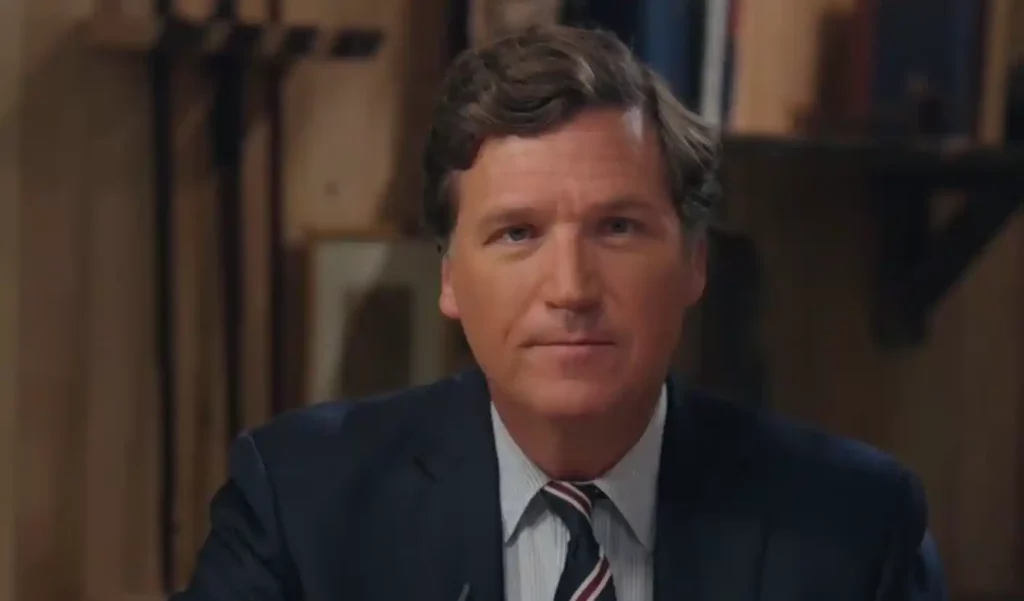The former Fox host is as outspoken as ever, and even if his remarks are a bit out there at times, he is opening up a new era of media.
Weeks after bidding adieu to Fox News, Tucker Carlson has resurfaced on Twitter with a new series aptly titled “Tucker on Twitter.” Here, the provocative commentator aims to disrupt the status quo by broaching topics considered ‘verboten’ by mainstream media narratives.
Carlson’s inaugural episode, centered on the destruction of the Kakhovka Dam in Ukraine, drew over 100 million views – a staggering figure surpassing the ratings of cable news giants Fox News, CNN, and MSNBC. The spotlight on the destruction of the Kakhovka Dam offers a nuanced perspective on an event clouded by conflicting accounts and political finger-pointing.
Carlson elucidates his standpoint: Russia had more to lose from the dam’s demolition, given the infrastructure’s location in territory it controls. Drawing parallels with the Nord Stream pipeline debacle, which is now believed to be the handiwork of Ukrainians despite initial attributions to Russia, he challenges prevailing media narratives.
Reports suggesting the US had prior knowledge of Ukraine’s intentions to sabotage the Nord Stream pipeline, yet remained silent, underscore his contention. As detailed by the Washington Post, the United States had knowledge of a “detailed Ukrainian plan to attack the Nord Stream pipeline” last June, with intelligence provided through a European spy agency.
While Carlson’s approach is refreshing, if not a bit anarchic, it must be acknowledged that he doesn’t always maintain an even keel in his analysis. His episode takes a seemingly personal turn against Ukrainian President Vladimir Zelensky and US Senator Lindsey Graham, an enthusiastic proponent of the war and America’s continued participation therein. He cites a recent clip of Graham talking to Zelensky, edited and posted by the Ukrainian president’s office – the editing making the senator’s words sound more sinister than they were: “The Russians are dying. It’s the best money we ever spent.” Carlson makes no mention of the tampering, which somewhat deviates from the pursuit of truth and, in a sense, mirrors some of the very practices he aims to critique.
Venturing further into uncharted territories, Carlson raises the question of recent UFO revelations and allegations of hidden technology gleaned from extraterrestrial wreckage. While his willingness to entertain such topics is commendable from a free speech perspective, a dash of skepticism seems warranted, given the lack of solid evidence and the risk of such subjects detracting from urgent terrestrial issues.
Nonetheless, Tucker Carlson’s Twitter foray signals a new frontier for discourse – one that’s unfiltered, unabashed, and relatively unfettered. Twitter’s broad-ranging user base presents an unparalleled opportunity to penetrate echo chambers and fuel conversations that transcend the boundaries of conventional media.
“As of today we’ve come to Twitter, which we hope will be the short wave radio under the blankets,” Carlson stated in his concluding remarks, drawing parallels between Twitter’s role today and the restricted access to information in the mid-20th century Soviet Union.
“We’re told there are no gatekeepers here,” he added. “If that turns out to be false, we will leave.”
However, with freedom comes responsibility. Tucker Carlson’s influence on public sentiment should not be taken lightly. His dissection of lesser-discussed issues can prompt necessary reevaluation of mainstream narratives, but careful, evidence-based analysis should take precedence over personal vendettas and sensationalism — entertaining though Carlson may be.
As the digital media landscape continues to evolve, so too should the norms governing it. Carlson’s new show epitomizes the unbounded potential of new media, a beacon for free speech – and a reminder of the challenges such liberty poses. It’s an exhilarating development for media pluralism, so long as it doesn’t devolve into a haven for misinformation or reckless journalism.
In conclusion, while Tucker Carlson’s first Twitter episode may not be without its flaws, it marks an intriguing new era of discourse, one that dares to question the establishment. Let’s hope it paves the way for more daring, yet responsible, dialogue on the digital stage.

https://youtu.be/XvxhTsCTL8Y
tucker carson last video. Enjoy
https://slaynews.com/news/nyt-complains-biden-fight-disinformation-judge-blocks-admin-censoring-americans/
just sharing good newsⁿ